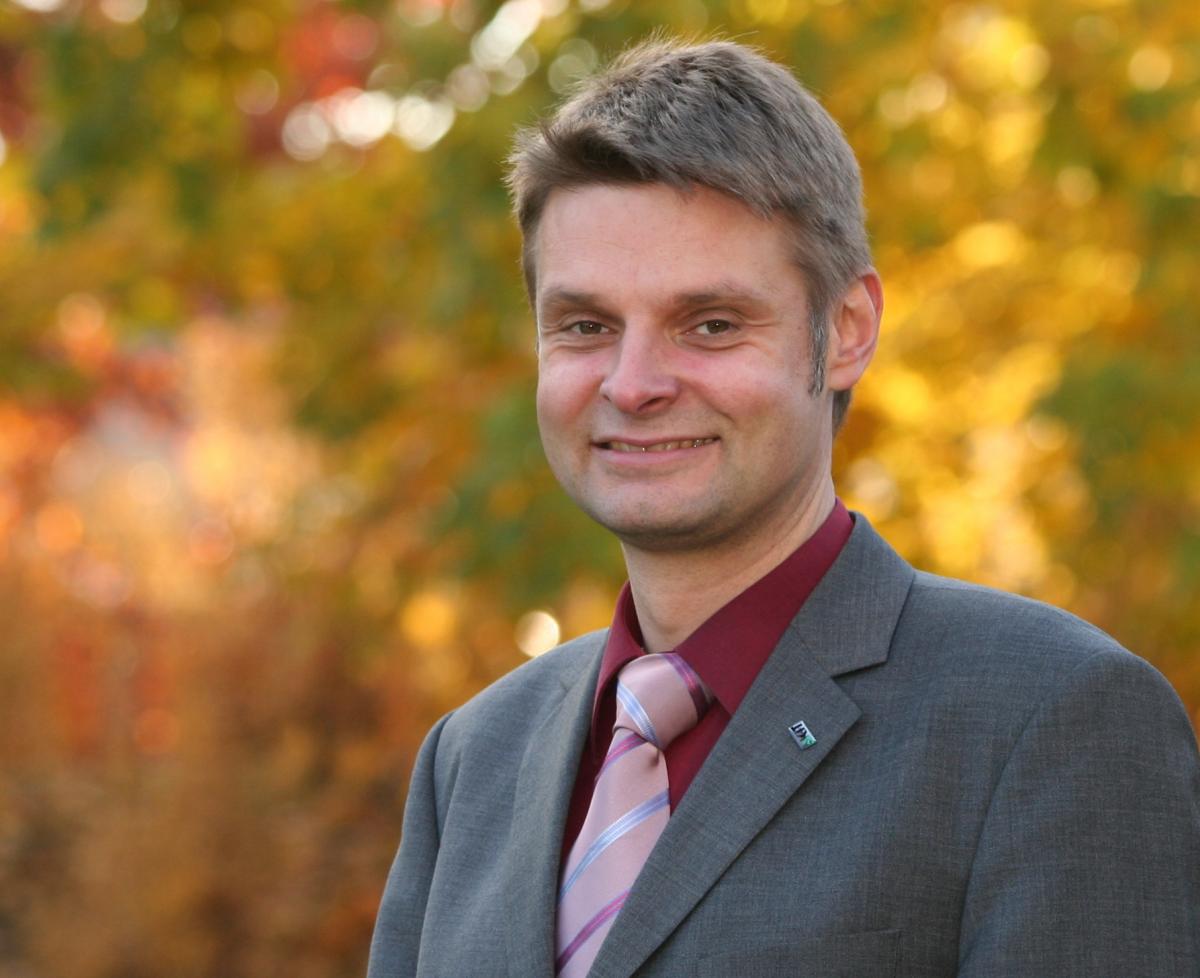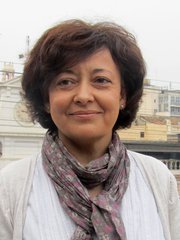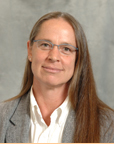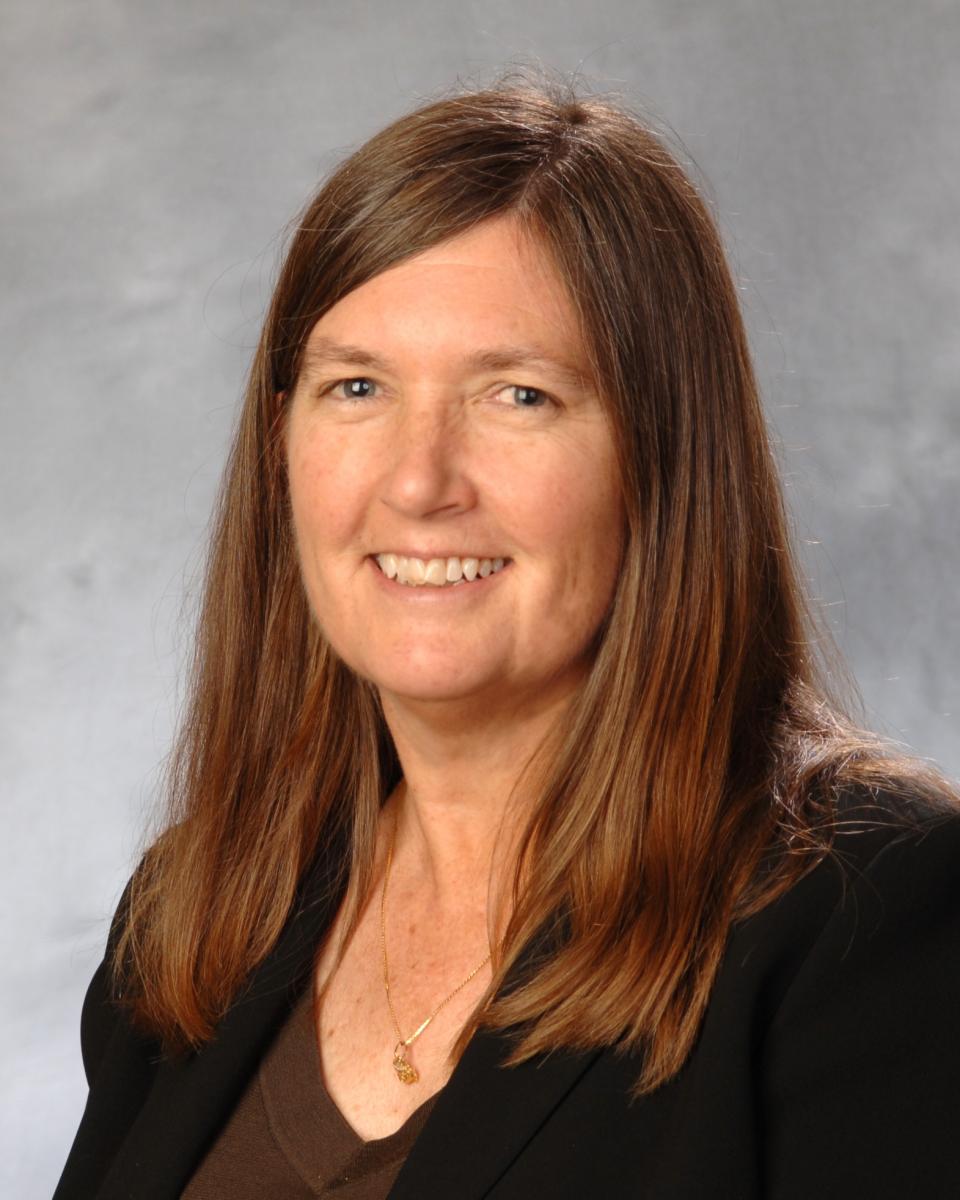Parallel Sessions 4.1 to 6.4
Establishing a research information system as part of an integrated approach to information management: best practice at the Karlsruhe Institute of Technology (KIT) (presentation available in PDF)
Frank Scholze (1); Jan Maier (2); Regine Tobias (1). KIT, Germany (1); AVEDAS, Germany (2)
The Karlsruhe Institute of Technology (KIT) is one of the largest research and higher education organisations in the world focusing on engineering and natural sciences.
At present KIT, under the chairmanship of its executive board, is installing an extensive current research information system (CRIS) covering all institutes and facilities of the organization.
This project is based on the fact that a consistent overview on research performance has become fundamental for the international competition of research institutions and is increasingly important for strategic decisions on the executive level.
The new research information system systematically maps all of KIT’s processes and instruments to obtain, connect, present and utilize research meta data of active researchers. This reduces the documentation workload for researchers, for the executive level and central units like the library and at the same time allows and facilitates an overall view and the aggregation and visualization of research meta data.
Our Vision: A federally structured network of systems that gathers information on KIT’s publications, research competence, research projects, patents and technological offers by retrieving data from external and internal sources as well as directly from the researchers. With its consistent data model the research information system also fosters the organizational development of KIT which was formed in 2009 by the merger of a university and a national research center.
The researchers and their activities are at the core of the research information system. Automatic data import from external online sources and repositories has the big advantage that publication data is acquired and validated only once and can be used subsequently for manifold purposes such as websites, CVs, publication lists and reference management software.
Due to the complexity of workflows, internal and external sources and the organizational infrastructure that is required for such an implementation KIT has chosen a commercial software solution (by AVEDAS AG) as the basic installation and in cooperation with AVEDAS will expand and adjust it to a tailor-made system that covers all of KIT’s aspects of publication and research life cycle. The CRIS at KIT is part of a larger integrated and service-oriented approach to information management (Karlsruhe Integrated Information Management - KIM).

|
Frank Scholze is Director of Library Services at the Karlsruhe Institute of Technology (KIT). He chairs the DINI (German Initiative for Networked Information) working group on electronic pub-lishing and has been involved in a series of digital library projects among them GRACE (EU FP5). Before he joined the KIT he has been Programme Manager at the Ministry of Science Research and the Arts Baden-Württemberg and Head of the Public Services Department at Stuttgart University Library. He holds an MA in Art History and English Literature and a BSc in Library and Information Science.
|
A partnership approach to promoting information literacy for higher education researchers (presentation available in PDF)
Stéphane Goldstein. Research Information Network, United Kingdom
The promotion and development of information literacy for researchers has tended in the UK to be the preserve of university librarians. Although much good work takes place in practice to help develop appropriate skills and understanding, this is often haphazard. There is thus a strong case for greater join-up involving input from and strategic coordination between interested parties beyond the library sector.
This is the rationale for the creation of a coalition of partners, including information professionals, graduate school personnel, data management specialists, research supervisors and researchers. The programme of work overseen by this partnership has involved engaging with and building on existing initiatives, as well as initiating its own projects. Since the launch of the partnership in November 2009, activities have included:
- Influencing the content of the national Researcher Development Framework (RDF), so that it properly addresses information-handling and data management knowledge and competencies.
- Preparing guidance, drawn from the content of the RDF, to provide clear and practical advice to researchers.
- Mapping the RDF against library-generated initiatives, notably SCONUL’s Seven Pillars of Information Literacy, as a means of encouraging synergy between different players.
- Devising means of highlighting and disseminating instances of good practices, to serve as a basis for advocacy of information literacy and to point to appropriate learning resources.
- Undertaking a study on the role of research supervisors, to investigating their role in helping to impart information literacy skills to their research students.
- Providing contextual support to JISC-funded initiatives in data management training, and helping to put these in the broader context of researcher development.
- Fostering the development of regional networks of different groups of professionals with an interest information literacy.
The partnership-building inherent in developing these various initiatives is crucial. It enables organisations with different interests and outlooks to work together and reach a common understanding in this important area of researcher development. Moreover, by reflecting a broader range of views, it endows the outputs of joint efforts with greater credibility. The poster will set out how this collaborative approach functions; how it is starting to bear fruit in the UK; and how it might serve as an example for other parts of Europe.
 |
Stéphane Goldstein is the Research Information Network's Head of Programmes, and helped to set the organisation up in 2005. He has been responsible for the development of the RIN's overall programme of projects and activities, and looks after a number of discrete areas such as the RIN's involvement in the information handling skills/training agenda. Before joining the RIN, he spent nine years at the Medical Research Council in various policy support and external relations capacities, including a stint as the MRC's parliamentary officer. He has also worked with Research Councils UK, charged with the co-ordination of aspects of research management policy.
|
Primary data in institutional repository: a case study (presentation available in PDF)
Silvia Arano Poggi; Gemma Martínez Ayuso; Marina Losada Yáñez; Marta Villegas Montserrat; Anna Casaldàliga Riera; Núria Bel Rafecas. Universitat Pompeu Fabra, Spain
This conference paper presents an approach to the open access publication of research data from humanities. It describes the case study implemented in the institutional repository (IR) of the Universitat Pompeu Fabra (UPF) about the creation of two data collections; one for the data usually annexed to doctoral theses and one for resources and tools used in actual research. We analyzed the experience and draw some conclusions regarding the use of repositories as research infrastructures.
The IR of the UPF (e-Repositori) began its public operation on May 19, 2009, after a development phase undertaken by the Library and the Information Technology services of the UPF. In January of 2010, the e-Repositori had already deposited 4613 items. The content area is organized in the form of virtual spaces, termed communities, in which digital materials are grouped according to their field (teaching, research, campus life, institutional content) as well as their type (journal articles, theses, working papers).
The current case study covers the implementation of a new community in the e-Repositori, dedicated to the publication of research data because of the demands of a research group of the Institut Universitari de Lingüística Aplicada (IULA). The Language Resources Technologies (TRL) Group, involved in the 7FP project CLARIN [www.clarin.eu], was interested in means to ensuring access and preserving data derived from research, as well as the possibility to validate this data, increase visibility of the results of investigations conducted, and to enable search and retrieval by other researchers of their own universities or by the academic community in general.
To ensure the smooth integration of these new targets, different though complementary to the initial idea of the e-Repositori, a group of researchers, librarians and IT technicians worked together to implement the creation of a new community called “Primary research data and resources”.
Launched as two new collections, it has content relating to research, whether it may be primary data, language resources or tools, or related areas, but with different origins: doctoraltheses and research projects. The implementation and development of both collections was conducted taking into account the following items: content, process integration, display format, results and proposals for improvement.
 |
Silvia Arano. Professor at the Department d’Informació i Documentació of the Universitat de Vic (Uvic) and assistant researcher at the Institut Universitari de Lingüstica Aplicada (IULA) of the Universitat Pompeu Fabra (UPF).
My areas of research are Information Retrieval and Knowledge Organization. My current interests are mainly related to the knowledge organization and retrieval of scientific data in Humanities. I am collaborator a research group focused on projects related to Technologies of Language Resources.
|
Europeana Regia: a collaborative library of royal manuscripts in medieval and renaissance Europe (presentation available in PDF)
Ana Barbeta (1); Claudia Fabian (2). Universitat de València, Spain (1); Bayerische Staatsbibliothek, Germany (2)
Europeana Regia is a collaborative project, which aims to create a European corpus of digitized, mostly illuminated manuscripts, which are testimonies of the circulation of texts and art in Europe in the Middle Ages and the Renaissance. Europeana Regia will concentrate on 3 of the most important sets of Medieval and Renaissance manuscripts:
• Bibliotheca Carolina: masterworks of the Carolingian Empire (8th-9th centuries).
• The Library of King Charles V of France: the most outstanding royal collection of illuminated manuscripts from the 14th century.
• The Library of the Aragon Kings of Naples: a unique concentration of masterworks of book illumination in the Renaissance.
Altogether, Europeana Regia will add 874 manuscripts and over 307.000 images to the Europeana.eu portal.
Europeana Regia started in January 2010 and runs for 30 months. It has the support of the European Commision under the ICT PSP Programme .
Europeana Regia has 5 partners from EU countries: Bibliothèque nationale de France, which led and coordinate the project, Bayerische Staatsbibliothek, Bibliothèque royale de Belgique, Herzog August Bibliothek (Wolfenbüttel) and Biblioteca de la Universitat de València.
A project of this nature has to deal with many different issues:
- Digitization of manuscripts according to technical specifications
- Descriptions and metadata systems: manuscripts have traditionally offer difficulty to be integrated into library catalogs. Their own characteristics have resulted in a difficulty to agreed international descriptions standards. Different solutions both in terms of required content and description format have been adopted. Europeana Regia partners themselves are a good example of this variety in the use of description schemas (MARC21/AMREMM, EAD, TEI). One of the challenges has been to identify which pieces of information should be necessary in the manuscripts description, to specify the concretion of each of these segments in different metadata schemes and to set crosswalks between them.
- Integration in virtual libraries: ER’s ultimate goal is to gather again virtually these royal collections now scattered, in order to offer a smart discovery and understanding. These manuscripts will be accessible through a diversity of points such as TEL or Europeana.
- Focus on users: Another challenge for ER is to identify and satisfy properly the different groups of users, experts or not, interested in this precious cultural heritage.
www.europeanaregia.eu
 |
Ana Barbeta is a librarian at the Universitat de València since 1999. She has worked in different areas such as electronic resource management and web maintenance. Since 2004 she works as System Librarian in charge of the ILS at the University. In the context of the Europeana Regia project she is in charge of coordinating tasks inside her institution and relationships with the other partners. She is a member of the Project Management Board of Europeana Regia project.
|
Managing research information for researchers and universities (presentation available in PDF)
Jennifer Schaffner. OCLC Research, United States of America
Recent research on scholarly behavior converges on conclusions about ecologies of information-related services in universities and across academic disciplines. In the past few years, numerous credible studies - conducted in Europe and North America - have offered evidence about information needs of a variety of researchers and their universities. While we have witnessed simultaneous evolution of discipline-based hubs and institution-based repositories, diverse international reports have identified gaps in digital infrastructure and library provision of services to manage research information.
The collaborative project of RIN and OCLC Research on support for scholarly workflows demonstrates that, in some contexts, research information services – such as expertise profiling, researcher identifiers, or CRISs - are best delivered by national, commercial or other external sources. However, the RIN/OCLC Research reports challenge academic research libraries and their parent institutions to develop new services that serve the needs of universities and their researchers. For example, recent studies document opportunities to offer useful services for managing data. In response, OCLC Research and LIBER have undertaken a joint project to examine the risks and implications of data curation, using a case-study approach. The goal of this transatlantic project is to test the extent to which university libraries might play a part in data curation services for researchers.
This presentation will synthesize the results of many recent reports – including those from RIN, OCLC Research, and the DCC - in order to reach system-wide conclusions about needs for research services, both within and outside libraries. Qualitative and quantitative study of academic administrators and scholars provides a wealth of evidence about the digital content and infrastructure required to span the entire life cycle of the fruits of research.
 |
Jennifer Schaffner is a Program Officer with OCLC Research and the RLG Partnership. She designs projects and leads work with the RLG Partnership concerning archives, rare books, manuscripts, scholarly expectations, data curation, and collaboration among libraries, archives and museums.
Jennifer has an MLIS from the University of Alberta, an MA in history from UC Irvine and a BA in classics from Stanford University. Prior to joining OCLC Research, Jennifer worked in rare book libraries and archives at UCLA, the Institute for Advanced Study in Princeton, New York Public Library, and Stanford. Jennifer's curatorial specialty is contemporary book arts and her intellectual focus is on the history of print culture in the early modern period.
|
All the world’s a stage: Improving students’ information skills with dramatic video tutorials (presentation available in PDF)
David Ewan Thornton; Ebru Kaya. Bilkent University Library, Turkey
This paper will describe an on-going project at Bilkent University Library, Turkey, to create a series of instructional online videos aimed specifically at the so-called Net Generation (Generation Z) library users. These videos, which will be produced by doctoral students from the university’s Communication and Design department in collaboration with the Library and will be uploaded to the world wide web. The videos seek to present basic reference and information problems in the form of short, informal dramatic exchanges between a student and a librarian, rather than using the formal pedagogical format of most traditional online tutorials.
The project grew out of a series of workshops on the research skills of first-year undergraduates in the university’s English language support program, in which the librarians prefaced each session with a short fictional sketch based on everyday reference problems relevant to the session in question. These sketches were well received by the students and it was proposed that similar dramas could be recorded and put to the Library’s website, as well as posted on youtube.com or a similar site.
The project has two main purposes. Firstly and most importantly, to promote library resources and improve information skills as effectively as possible by using a medium and style aligned with the students’ social networking and academic behaviour as Internet users. Our aim is to achieve instructional efficiency while remaining amusing. Secondly, we are actively seeking to collaborate more effectively with the wider academic community on a number of fronts and thereby develop the Library as a dynamic part of the university, and not merely an anonymous set of walls. Each video, which will be in Turkish with English subtitles, will last about four minutes and will show an exchange between a student actor and real reference or circulation librarian. The videos will form an assignment in the students’ Spring 2011 course, and will be graded by their instructors as well as assessed by representatives from the Library.
The conference paper will begin by reviewing the literature about instructional tutorials and surveying existing online tutorials. We will describe the development of this project to-date, covering the theoretical background and some practical problems, and will also ‘air’ a couple of the finished videos as samples.
 |
Dr. David E. Thornton, Ph.D. (Cantab.), is a native of Wales, and is a medieval historian by training. He has been teaching European History at Bilkent University, Turkey, since 1997, and was appointed Library Director in 2007.
Ms. Ebru Kaya, MBA (Istanbul) has 15 years’ experience working in academic libraries in Turkey, and has been Associate Director of Bilkent University Library since 2006. She is also Vice-President of the Turkish Library Association, and is a member of the advisory board for national site licensing of the Turkish Academic Network and Information Center (ULAKBIM).
|
Making data citable – The German DOI® registration portal for social and economic data (da ra) (presentation available in PDF)
Brigitte Hausstein (1); Stefanie Grunow (2). GESIS – Leibniz-Institute for Social Sciences, Berlin, Germany (1); ZBW-Leibniz Information Centre for Economics, Hamburg, Germany (2)
In the interest of good scientific practice there is a demand to make collected primary data publicly accessible, so that one sees not only the final, conclusive research results, but the entire research process can be followed as well. This is why the GESIS – Leibniz-Institute for Social Sciences (GESIS) and the ZBW – Leibniz Information Centre for Economics (ZBW) decided to implement the DOI® registration portal for German social and economic data – da ra. This infrastructure will lay the foundations for a permanent identification, localizing and ultimately a reliable citability of research data. A DOI is a name that permanently identifies an object (such as research data) in the digital environment. The DOI® name won’t change, even though the information about the data, including where to find it, may change from time to time. In cooperation with DataCite, the international initiative to establish easier access to digital research data, GESIS is already operating the non-commercial registration agency for social data. The service was initiated in 2010 with a pilot phase in order to set up the technical and organizational framework. Meanwhile 4780 studies are registered with DOI® names. From 2011 onwards the registration service will be expanded to economic data. The paper will deal with the technical and organizational solutions of the DOI name registration portal and focus on how the new features are included in the already existing DOI® service. As members of DataCite we will also introduce this new organization and describe its role in the process of developing uniform standards for acceptance of research data as independent, citable scientific entities.
http://www.gesis.org/dara
http://www.zbw.eu
http://www.datacite.org/
 |
Brigitte Hausstein is responsible for the new project on DOI registration for social and economic data (da|ra) at GESIS – Leibniz-Institute for the Social Sciences, Department Data Archive for the Social Sciences. Brigitte graduated from Humboldt University, Berlin in sociology, economics and psychology. Since 1993 she has been at the GESIS – Leibniz-Institute for the Social Sciences, senior researcher at the Service Agency Eastern Europe in Berlin. She has been working on several international data archiving projects including the cessdaPPP.
Stefanie Grunow graduated from the University of Applied Sciences, Wismar in Commercial Law.
Since 2010 she has been at the ZBW – Leibniz Information Centre for Economics. She previously worked in the legal department of a private undertaking.
At the ZBW she is responsible for licensing, legal issues and the coordination of the cooperative project with GESIS for DOI registration for social and economic data (da|ra).
|
Together at last: integrated collection care for digital and physical collections (presentation available in PDF)
Tanja de Boer. Koninklijke Bibliotheek, The Netherlands
The KB has adopted a strategic plan, focussing stronger than ever on the development of the digital library. To meet these ambitions KB has developed an innovative strategy for collection care:
- integrated collection care for digital and physical collections
- classification of collections into homogenous lots
- based on a statement of significance: qualified and quantified valuation
- indication of risks that impact specific collection values
- development of preservation- and conservation levels
- care redirected from the most ‘valuable collections’ to those where the highest risks for specific values are indicated.
The fact that the same principles will apply to both physical and digital collections is new to the KB.
The KB keeps everything that is published in and about the Netherlands on paper, or preferably in digital form. We can not give the same amount of care to all our kilometres and terabytes. And that is not per se necessary. Not all collections are equally important, and not all materials are equally vulnerable.
To aid in selection we designed a valuation model to qualify and quantify the cultural and economic values of our collections. For this we divided our digital and physical collections into lots; 15 in the digital collections, and 9 physical lots. We defined values applicable to our collections and formulated four primary criteria, the basic values of a collection: Informational, Aesthetic, Historic, and Social value.
Next there are four comparative or secondary criteria: Use, Completeness, Condition and Provenance.
Formulating primary and comparative criteria results in a qualitative statement about the total value of a part of the collection, or the significance of that collection. A simple system of quantifying is set up to enable prioritisation.
Next step is a risk indication for risks to be expected for different values.
Finally we’ll design a limited set of preservation- and conservation levels, applicable to specific lots. The levels and the actions that go with them are aimed at preventing loss of value.
Identification of values and relating risks to specific values will enable the KB to determine the nature and amount of care. We’ll spend our resources in a more effective and objective manner. Collection Care contributes to building and equipping the National digital library.
 |
Tanja de Boer (*1962) has worked at KB as Head Collection Care since 2007. The department of Collection Care is responsible for collection care of digital and physical collections.
Before working at the KB she was curator for the contemporary collections at Museum Meermanno in The Hague, and Inspector at the Inspectorate of Cultural Heritage.
|
Establishing the library landscape in Europe: LIBER's portfolio of EU projects (presentation available in PDF)
Paul Ayris. UCL, United Kingdom
LIBER's strategy (at http://www.libereurope.eu/node/59) has established Key Performance Areas for LIBER to add value to the library and information services available to European researchers. The five key Performance Areas are: Scholarly Communication, Digitisation and Resource Discovery, Heritage Collections and Preservation, Organisation and Human Resources, and LIBER Services.
LIBER has developed a number of mechanisms for delivering its strategy. One such mechanism, a completely new mechanism for LIBER, is through bidding for EU project funding in the areas of its strategic interest. At the time of writing, LIBER has 4 EU-funded projects and is in discussion with the Commission about a sponsored piece of work. These projects are in the areas of digitisation, resource discovery, scholarly communication, and digital preservation - all Key Performance Areas for LIBER in its new strategy.
The first part of the paper will evaluate the advantages (and identify any disadvantages) in using project bidding as a means of delivering LIBER's strategy. It will benchmark itself against a review of the strategic planning process in UCL Library Services which has recently been undertaken by RAND Europe. The paper will also set LIBER's success in fundraising in the context of the current economic climate in Europe and evaluate the advantages for libraries in working with LIBER on EU project bids.
The second part of the paper will give an overview of all the EU projects in which LIBER is currently involved - Europeana Libraries (for resource discovery, launched in The Hague in January 2010), Europeana Travel (LIBER's first EU project, which comes to an end in May 2011), ODE (Opportunities for Data Exchange) and APARSEN (a Best Practice Network for digital curation). This part of the paper will also discuss a piece of work commissioned by the EU from LIBER on a digital preservation network in Europe.
The third part of the paper will evaluate progress in each of these projects and then place them into the wider European library and information landscape. The paper will show what contribution these project outcomes will make to the European user. Areas for future work, and gaps in current provision, will be highlighted and explored.
The paper will conclude by evaluating the success of LIBER's portfolio of projects in (a) delivering LIBER's strategy and (b) making a contribution to the development of the library and inormation landscape in Europe.
 |
Dr Ayris has been Director of UCL Library Services since 1997. He is also the UCL Copyright Officer.
Dr Ayris is the President of LIBER (Association of European Research Libraries). He is also Secretary of the SPARC-Europe Board. He co-chairs the OAI Organizing Committee for the Cern Workshops on Scholarly Communication. He is a member of the JISC's Electronic Information Resources Working Group and was, until recently, a member of the NSF-funded Blue Ribbon Task Force on economically-sustainable digital preservation.
He has a Ph.D. in Ecclesiastical History and publishes on English Reformation Studies.
|
How to teach information literacy relevant to students: an online credit course model from the University of Tartu Library (presentation available in PDF)
Vilve Seiler; Kart Miil. University of Tartu Library, Estonia
To communicate the necessity of information literacy in the university and to draw attention to it as a possible subject, we created in 2006 a web-based general course model of information literacy. The course is based on the ALA standards and is now included in the university curriculum as a credit bearing optional elective course, giving 3 ECTS credit points. We relied on experiences described in professional literature: information literacy can be effectively taught in separate courses, and such courses should be offered by libraries as well. On the basis of the course, we have also created an advanced course for doctoral students, several specialized courses in information literacy integrated into subjects, and a nationwide course for gymnasium students.
In teaching information literacy, the facilities of e-learning are widely used. However, there are not many thorough researches discussing the teaching of information literacy in a separate course through e-learning only.
This presentation describes the functioning of the e-course model that provides an opportunity to participate for students of different specialties, and enables them to fulfil the tasks of the course in accordance with their information needs. There is no face to face contact in the course, but there is personal supervision; each student´s tutor is a subject librarian well versed in the information sources in the student´s specialty. The goal was to remain learner-centered and personal.
The course is based on the constructivist view of learning, which places the student in the centre of the learning process; in choosing the activities for the course, emphasis is laid on activating methods and problem-based learning.
The course has been popular among students for four years, and we have received much positive feedback. In this presentation we’ll give the overview about first results of a qualitative content analysis of the feedback and reflections provided by those who have finished the course. The task is to find out what knowledge and skills acquired in the course are appreciated by the learners, how the learners associate the acquired skills with their learning goals, and how suitable is e-learning as a method of learning and teaching for acquiring information competence.
  |
Vilve Seiler. I studied German philology and pedagogy at the University of Tartu and have a master’s degree in translation. I have been working at the University of Tartu Library since 1980 where I started as librarian in the department of old books. Since 2001 I work as subject librarian for the Faculty of Social Sciences and Education. My responsibilities include collection development in social sciences, library user education and design and delivery of information literacy courses. As subject librarian I have attended several courses and conferences on information literacy, e-learning and university teaching, my primary interest is the effective use of e-learning in information literacy education for students.
Kärt Miil. I delivered information literacy courses for law students in face-to-face trainings 2003-2006, from 2006 designing and delivering different e-courses, including those in cooperation with Vilve Seiler and other subject librarians.
My main interest is to find method how to make the information literacy courses attractive for gymnasium students and those who have pass through information literacy module in mandatory courses.
|
Confederation of Open Access Repositories (COAR): a truly international effort to build a global repository network (presentation available in PDF)
Alicia López Medina (1); Norbert Lossau (2). Universidad Nacional de Educación a Distancia (UNED), Spain (1); Niedersächsische Staats- und Universitätsbibliothek/ Goettingen State and University Library Germany (2)
COAR is a new association of international range founded in Ghent, Belgium on October 21, 2009. Comprising already at this early stage more than 50 institutions and organizations from 23 countries (incl. Asia, North- and South-America) its mission is to enhance greater visibility and application of research outputs through global networks of open access digital repositories. Following the first General Assembly in March 2010 in Madrid, COAR will be pursuing those activities which have been identified as being vital for COAR members. The presentation will outline some of those activities such as:
• Raising the profile of repositories through a strong organization with an authoritative voice
• Ensuring interoperability of repositories, e.g. by providing guidelines to repository managers and aggregators
• Populating repositories with content, e.g. by sharing success stories or working with publishers to standardize self-archiving policies and publisher deposit processes
• Supporting regional and national repository initiatives, e.g. by giving practice-based support to their regional or national repository helpdesks or providing advice and guidance on suitable repository infrastructure technologies
• Promoting the repository manager profession
The presentation will also show how COAR collaborates with related organizations and projects, such as LIBER, SPARC(s), IFLA, UNESCO or the European OpenAIRE project and will address the essential role of research libraries in the implementation of the global network of open access repositories.
 |
Alicia López Medina is currently Head of Technology Innovation Service in the UNED Library. In recent years, he has devoted much of his work to the development of digital repositories, education and training of librarians and library users. In 2005, she led the project to create “e-SpacioUNED” – the institutional repository of UNED University. Alicia is the scientific coordinator of RECOLECTA Project since 2007. At the European level, Alicia coordinates the Spanish collaboration and participation in various FP7 funded projects (DRIVER II, NECOBELAC and OpenAIRE) related with Open Access and repositories. Alicia is member of the Executive Board of COAR (Confederation of Open Access Repositories).
|
OCLC research survey of special collections and archives in research libraries (presentation available in PDF)
Jackie Dooley. OCLC, United States of America
This paper will summarize findings of an OCLC Research survey that studied 275 academic and research libraries across the U.S. and Canada. The results were published as Taking Our Pulse: The OCLC Research Survey of Special Collections and Archives. The speaker also will explore the possibility of collaborating with LIBER on a similar project for the European research library community.
Our survey population comprised five membership organizations, encompassing institutions that range in size and type from national institutions and the largest university libraries to small private colleges and world-renowned independent research libraries. 60% of respondents were university libraries and 20% were college libraries; the others were museums, national institutions, and several other organizational types.
Undertaken to update and expand a 1998 Association of Research Libraries survey that proved catalytic, we sought to identify norms across the community to support decision-making, and to make recommendations for community action and further research. We investigated seven areas: collections, user services, cataloging and metadata, archival collections management, digitization, born-digital management, and staffing.
A brief overview of the data: while special collections and archives holdings have expanded dramatically and use is increasing, many materials remain undiscoverable for lack of metadata, and some backlogs have continued to grow. Staff size is stable except in technology, where it has increased. 75% of these libraries’ overall budgets have been reduced as a result of the global economic downturn. The most commonly cited “challenging issues” were space, born-digital management, and digitization.
One of the organizations surveyed was our RLG Partnership, whose global membership includes national libraries in Europe, Japan, and Australasia, as well as universities and museums across the U.K. and Europe. These were not included because differences in professional practice, key issues, and terminology warrant use of a modified approach. The LIBER Board has begun to discuss the possibility of a similar survey for European research libraries and has opened discussion with OCLC Research about lending our experience to assist with such a project.
 |
Jackie Dooley is Program Officer at OCLC Research, where she conducts research projects focused on special collections and archives in research libraries. She is also a member of the Special Collections Working Group of the U.S. Association of Research Libraries, which published a report on current issues in special collections and archives in 2009. She is principal author of Taking Our Pulse: The OCLC Research Survey of Special Collections and Archives (OCLC Research, 2010).
Dooley was Head of Special Collections and Archives and University Archivist at the University of California at Irvine from 1995 to 2008. Earlier positions were at the Getty Research Institute, the University of California at San Diego, and the Library of Congress. She has long been active in both the Society of American Archivists and the Rare Books and Manuscripts Section of the Association of College and Research libraries. She is a 2011 candidate for election as President of the Society of American Archivists.
Dooley is a recognized authority on metadata and descriptive standards for rare and unique materials, having edited rules for rare book cataloging and developed genre and subject thesauri. She was a member of the research team that designed and implemented Encoded Archival Description. She is a frequent speaker in her areas of expertise and has published well-known articles on a variety of subjects, including technology for special collections, EAD, subject indexing, genre/form access, and archival authority control.
|



















